Where do spies go when they need a little research help? Why the CIA Library of course!
The library at CIA Headquarters is a cutting edge research and information hub. CIA Librarians provide Agency employees with all-source reference and research services by leveraging access to more than 200 domestic and foreign online databases that together include over 90,000 full-text electronic periodicals, dissertations, photographs, biographical resources, and public records. The Library also has a vast print collection, which includes journals, newspapers, and approximately 100,000 books. Together, these resources cover the fields of international affairs and political science, business and economics, science and technology, and topics of general and scholarly interest.

As you can imagine, that’s a lot of information to search through. Our librarians are expert researchers, and our employees depend on the help of librarians in a variety of circumstances. Although the subject matter and specific research needs of Agency employees are quite unique, many of the tips and tricks on how to find, organize, and sift through information is applicable to anyone who needs to do research, whether you are a student, scholar, or just someone who likes to explore new ideas.
Because it is that time of year again when students of all ages are headed back to the classroom, our CIA Librarians wanted to share 10 of their research tips to help start the school year off right!
1. Get to know your librarian.
Almost every school has a library and a librarian on staff. Explore the library and talk to the librarians. Librarians are experts in finding information and can often point you to information you would not have found on your own.
2. Narrow your research topic.
Having a well-defined topic is the first step in a successful research project. If your topic is too broad, you will waste time digging through large amounts of information. By focusing your topic at the beginning, you will save yourself a lot of time in the research stage.
3. Expand your search terms.
Try searching synonyms of your main search term. Keep track of terms you have already searched to avoid duplication. Also, try not to be too specific or you may exclude things you want to see. Websites for identifying new words to search include Dictionary.com, Thesaurus.com and Visualthesaurus.com, to name a few.
4. Advanced search is your friend.
It is tempting to just type your search terms into the main search box and hit enter, but you can usually get more useful results faster by using the advanced search functions on your preferred search engine platform (e.g. Google, Bing, DuckDuckGo, etc.) Limit your results by document type (PDF:research 101), domain (site:.edu), site (site:cia.gov), or simply by specific dates.
5. Explore your local library.
Public libraries are also a great source of information and often have resources that can be accessed from home. Many public libraries offer online access to databases, audio books, e-books, magazines and journals. Take advantage of this free resource in your community!
6. Keep track of your sources.
The Internet is full of helpful websites, but sometimes it is difficult to keep track of where you found information. Every time you take information from a website, save the URL in a browser “Favorites” folder. That way you’ll have an accurate list of your sources at the end of your research project.
7. Take pictures.
A picture can be worth a thousand words — or at least help you remember where you found those words! When you are working with a book or article that you cannot take with you, snap a picture with your phone of the title or cover. This will help you easily locate the item if you need to access it again.
8. Document, document, document.
Plagiarism is never a good thing, so you want to make sure you give credit where credit is due. There are many tools out there that can help you keep track of your sources. Apps like Pocket, Evernote and Instapaper allow you to save articles and other sources to read or cite from later. Tools like EasyBib, BibMe and CiteThisForMe can be used to generate citations and allow you to create bibliographies and works cited pages using a range of citation styles. Some even allow saving and sharing of citations for group projects.
9. Organize your thoughts and main points.
When you are looking at multiple sources, it can be hard to keep everything straight. There are tons of online tools available, such as Popplet, Bubbl.us and MindMeister that can be used to capture and organize your ideas. You can use these types of tools to jot down your thoughts, sort them visually, prioritize by color, and move them around — a quick and easy way to make sense of your ideas!
10. Keep track of deadlines.
You do not want to wait until the last minute to get started on your project. There are mobile apps that help you organize homework and exams by due date, such as Studious, MyHomework Student Planner, and My Study Life. You can use tools such as these to see upcoming assignments and manage your time to never miss a due date again!
The CIA does hire librarians. If you’re interested in learning more about careers at the CIA, click here.
*The CIA does not endorse any non-CIA website or application. The CIA identifies websites and applications in this document for illustrative purposes only.

